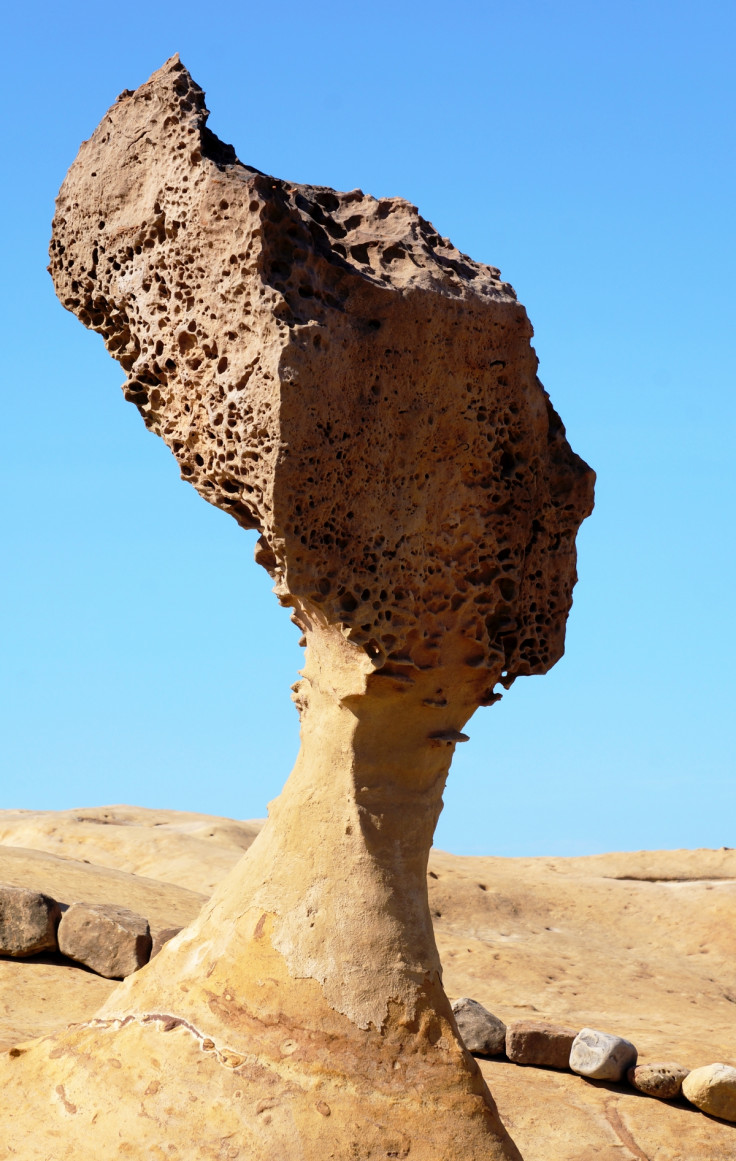Scientists battle to save Taiwan's 4,000-year-old Queen's Head

Taiwanese scientists are in a quandary on how to save the country's iconic 'Queen's Head' rock formation as the natural monument slowly succumbs to erosion. The eight-metre tall rock, which got its name through its apparent resemblance to Queen Elizabeth I, is visited by more than 3 million people a year, but 4,000 years of being battered by the elements means that time is wearing thin to save it.
"The neck may become too thin to support the head and might break off within the next five to 10 years, if nothing is done," warns Hsieh Kuo-huang, a professor at the Institute of Polymer Science and Engineering at National Taiwan University, when speaking to AFP. "Any strong earthquakes or severe typhoons may bring down the rock formation."
The neck, the researchers claim, is shrinking by up to 1.6cm a year, which is putting pressure on the support due to the 1.3 tonne head. "The shape of Queen's Head today looks most elegant," says Helena Tang of Neo-Space International Inc which manages the park where the rock is situated. "But sadly, there's not much time left."
Hsieh and co developed a paint which contains nanotechnology that works on a molecular scale to strengthen the rock but it has yet to be used on the Queen's Head. It has been tested on surrounding rocks with mixed results.
"Our analysis shows that the strength of the rock's neck could be intensified by up to three times, while the surface resistance to erosion could be enhanced markedly," Hsieh said. However, the paint peeled off after time, leaving it exposed once more to the elements.
However, not everyone supports efforts to preserve the rock and believe erosion is just a part of nature's ruthless course. A survey of 1200 people conducted at the geopark found that just 63% of people were in favour of scientific tests aimed at preserving it.
Pan Han-sheng, an activist from the pro-environment Tree Party, said: "As the coastal landscape was made by erosion, the lifespan of the Queen's Head is limited. I don't understand why we would want to freeze its lifespan."
© Copyright IBTimes 2025. All rights reserved.






















